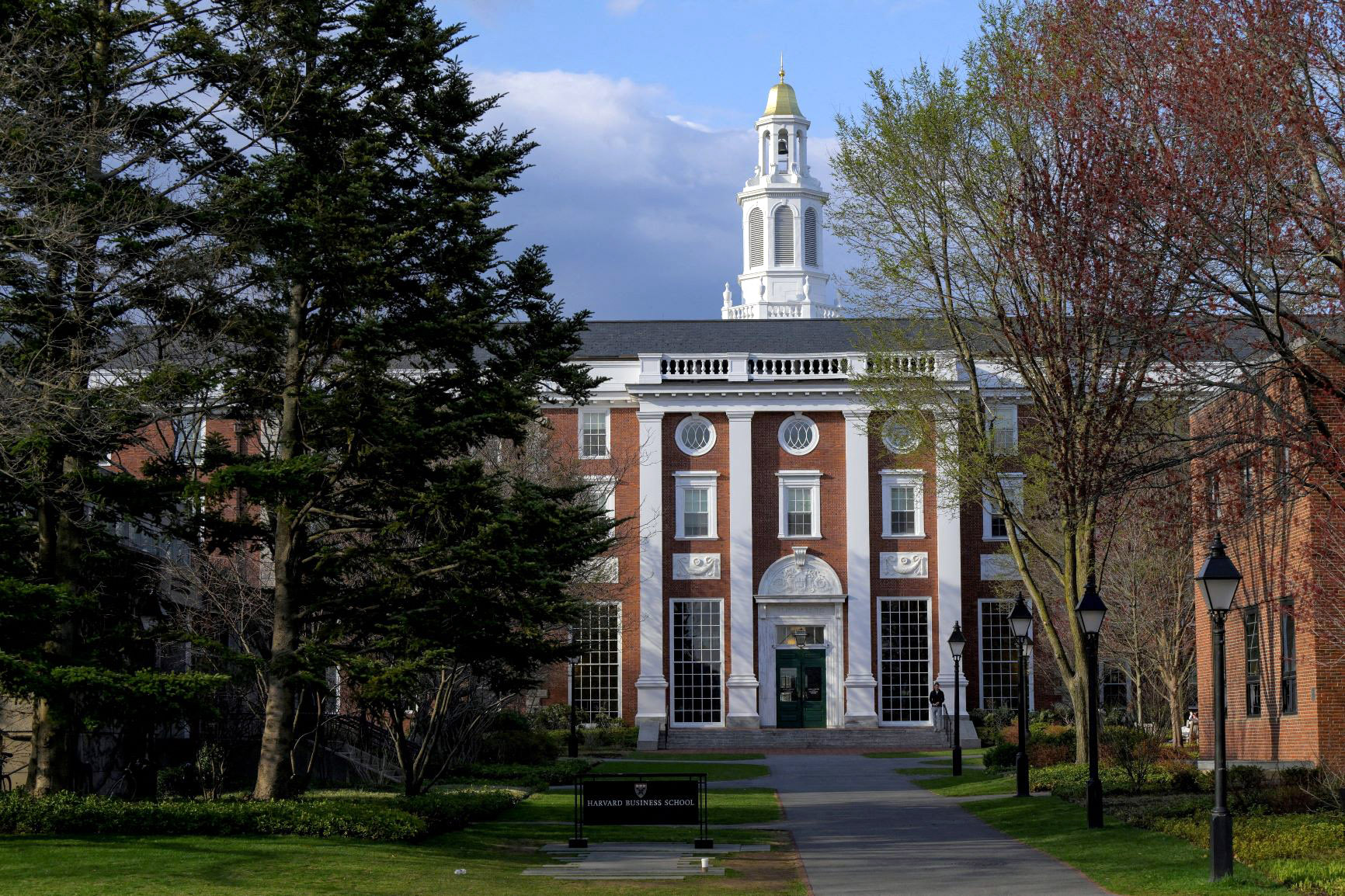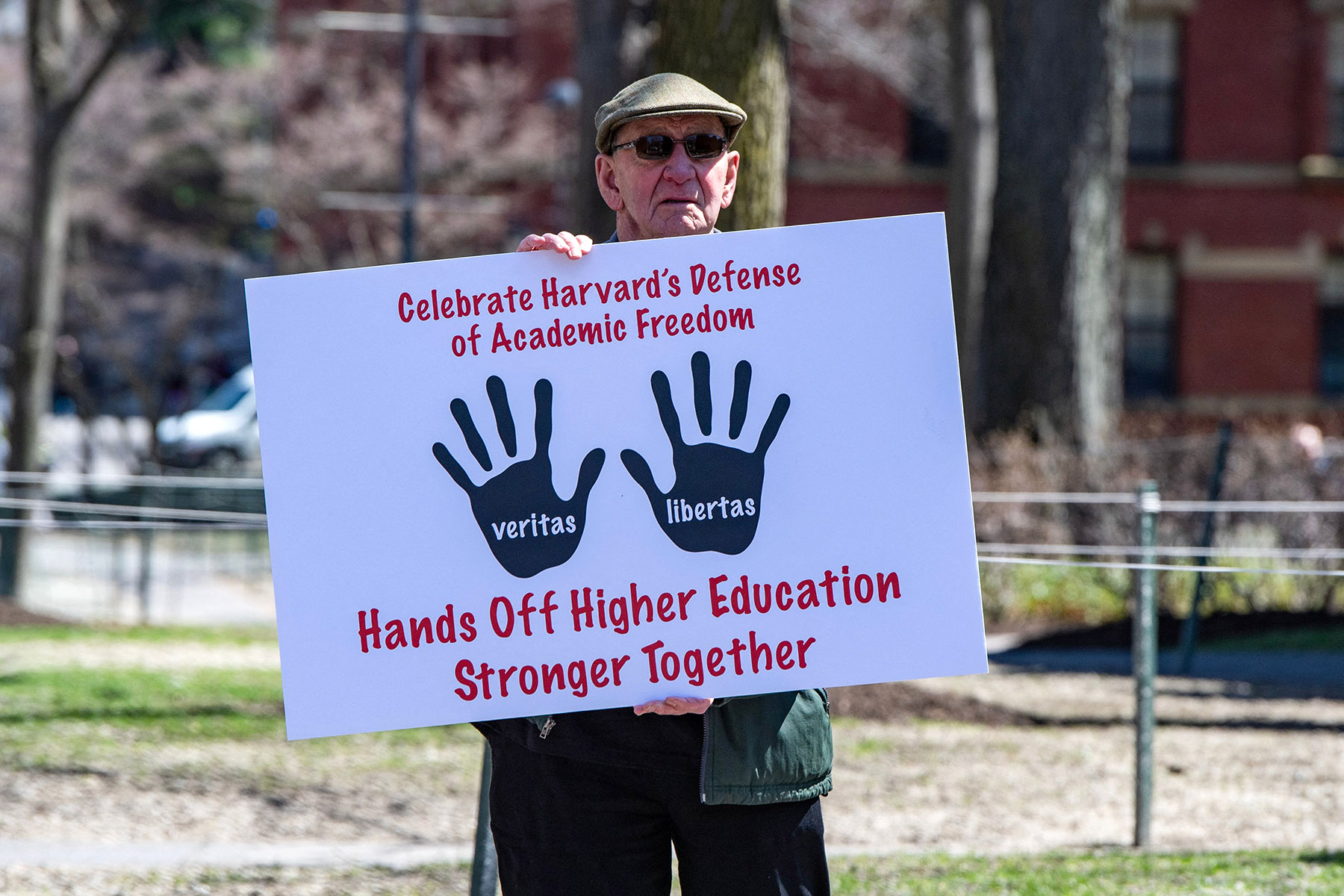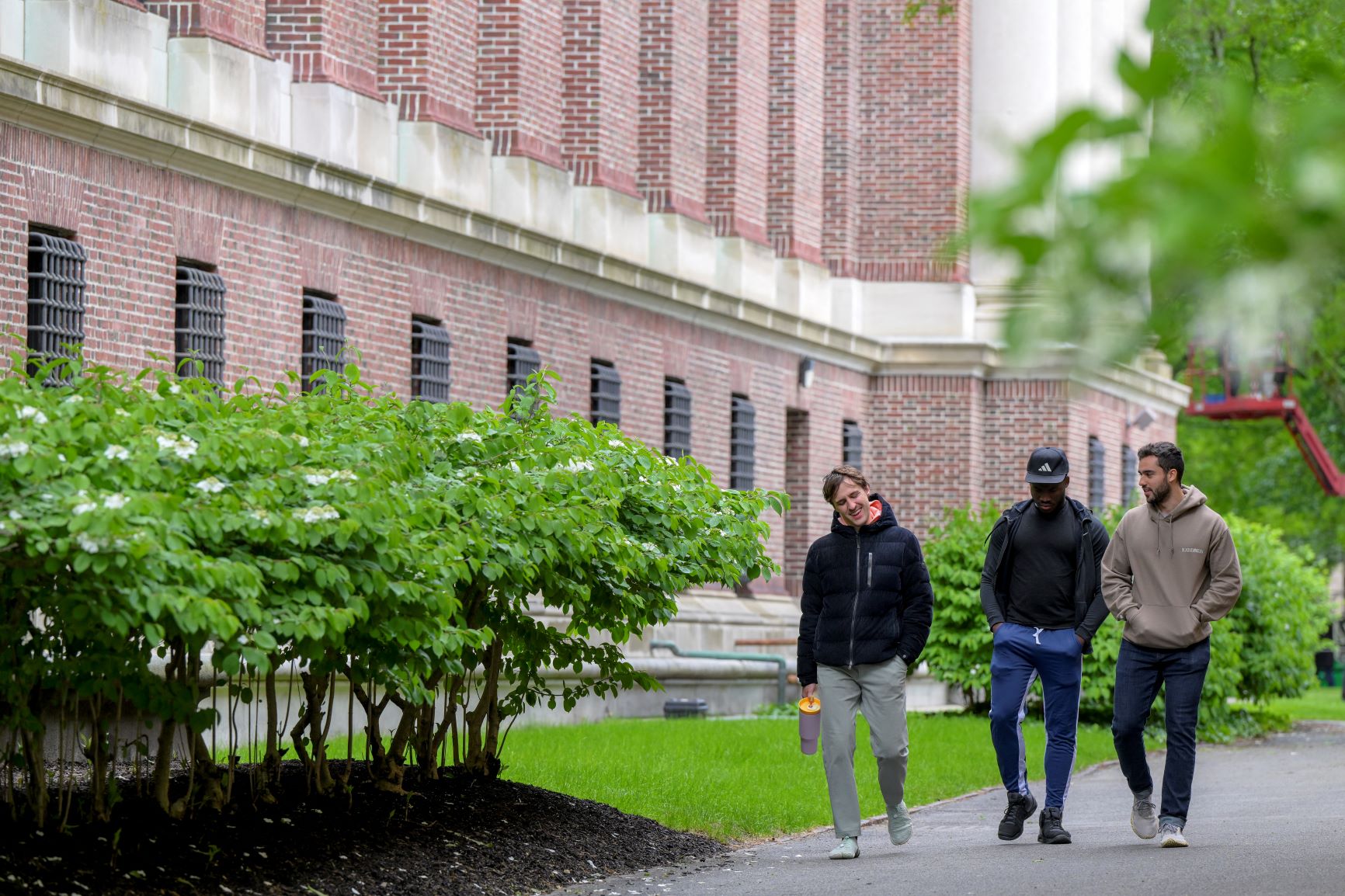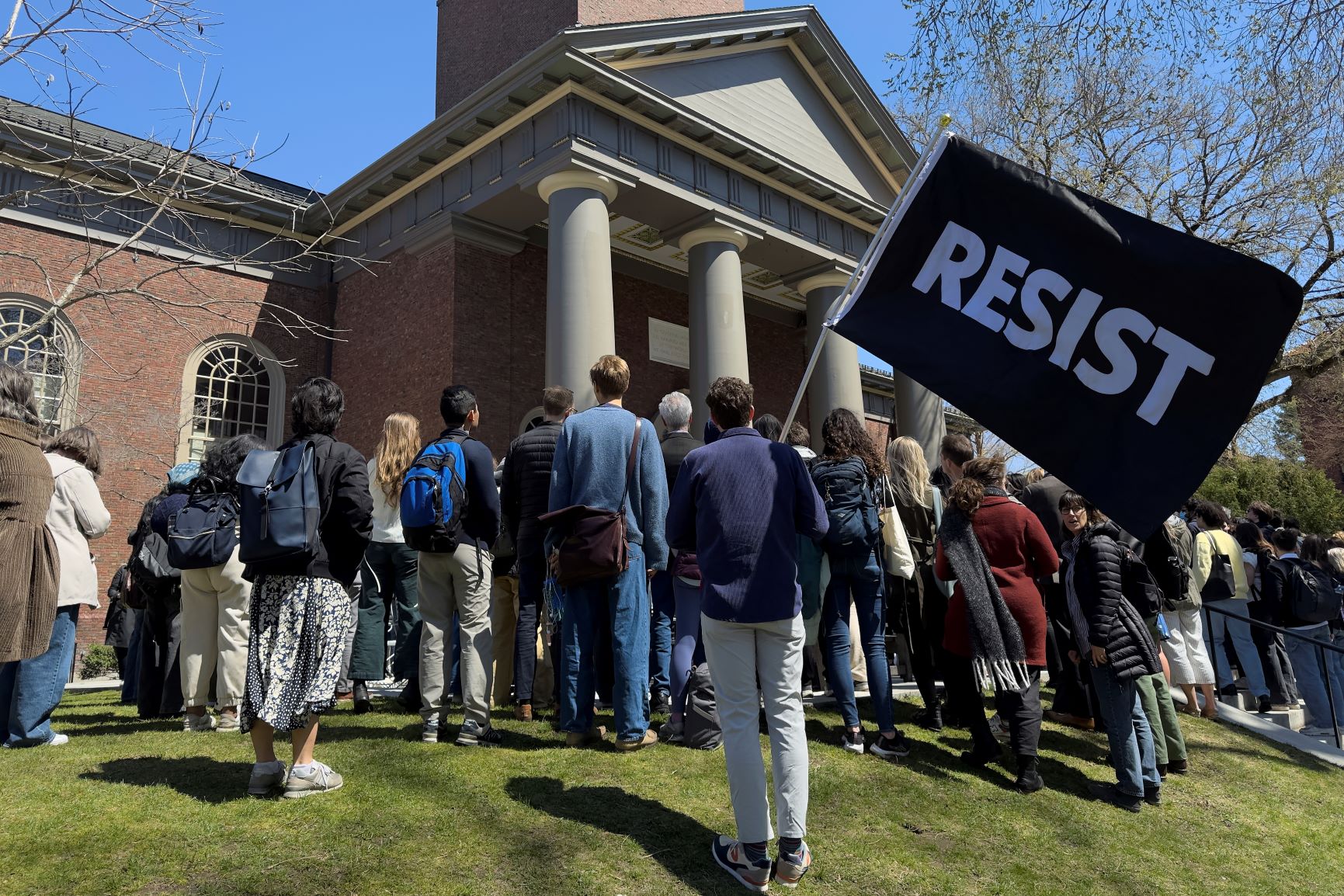Ending visitor program raises fears of wider damage to US education system

Fangzhou Jiang, a graduate student at the Harvard Kennedy School, had quite an emotional roller-coaster ride between the Trump administration's barring of all international students from attending Harvard University on Thursday and a court ruling to halt the decision the next day.
Homeland Security Secretary Kristi Noem ordered her department to terminate Harvard University's Student and Exchange Visitor Program certification, claiming that "Harvard's leadership has created an unsafe campus environment by permitting anti-American, pro-terrorist agitators to harass and physically assault individuals, including many Jewish students, and otherwise obstruct its once-venerable learning environment".
The Department of Homeland Security announcement said that "Noem demanded Harvard provide information about the criminality and misconduct of foreign students on its campus" and "Harvard University brazenly refused to provide the required information requested and ignored a follow-up request".
READ MORE: Trump administration blocks Harvard from enrolling foreign students
Speaking to China Daily minutes after the court ruling on Friday, Jiang, co-founder of Crimson Education, an education agency helping students navigate the admission process of US universities, said he was shocked when he found out the news was real.
"I saw this news at 2 pm in the afternoon. My first reaction was, this can't be true. I thought it was a rumor or fake news," he said.
Harvard has had a few "tug of war" encounters with the United States government in recent months, but Jiang thought the fight was over, as the government's withholding of funds from the Ivy League university had already been "quite impactful".
The Trump administration has frozen billions of federal funding to Harvard and opened an investigation into how it has handled antisemitism. In April, Harvard sued the administration over the funding.
"Then suddenly came this big news that we can't attend Harvard anymore," Jiang said. "All international students were given no time to prepare for this. It's quite shocking. Many of us felt angry, helpless and lost because US immigration law is very strict about legal status."
As Harvard didn't immediately issue any instructions to international students following the government's announcement, Jiang said many were panicking. However, he said he understands the university's position as it's such a big issue, and Harvard's leadership needs time to decide what to do.
University President Alan Garber issued a statement to the Harvard community on Friday morning condemning "this unlawful and unwarranted action".
"It imperils the futures of thousands of students and scholars across Harvard and serves as a warning to countless others at colleges and universities throughout the country who have come to America to pursue their education and fulfill their dreams," he said.
Garber refuted the DHS' claim the university had failed to comply with requests for information. "In fact, Harvard did respond to the department's requests as required by law," he said.
He also gave assurances to international students and scholars affected by the government's actions. "We will support you as we do our utmost to ensure that Harvard remains open to the world," he said.

Legal challenge
On Friday, Federal judge Allison Burroughs in Boston blocked the Trump administration from cutting off Harvard's enrollment of foreign students. In a lawsuit filed earlier the same day, Harvard said the government's action violates the US First Amendment and will have an "immediate and devastating effect for Harvard and more than 7,000 visa holders". Burroughs' decision puts the sanction against Harvard on hold, pending the lawsuit.
Jiang said he and many international students were relieved by the court's decision but remained "cautious".
"The administration might not abide by the court's decision. The situation is chaotic and the future is uncertain," he said, adding he doesn't know whether he will be able to attend Harvard campus this fall to complete his master's degree in public administration.
However, Jiang believes the US government is using this as a bargaining chip and doesn't intend to "totally cripple Harvard" or extend the decision to other universities.
Still, the situation is creating uncertainty, anxiety, panic and problems, he said.
Many international students believe it's too soon to determine their next steps amid the shifting legal landscape, according to The Harvard Crimson, a campus newspaper.
The White House instructed students to transfer to another university "or lose their legal status", but deadlines for transfer applications to most other universities have long passed. Suggestions for Harvard's "studying abroad" program or "remote learning" have been floated online. Most international students said they were waiting for official guidance from Harvard officials.
For some, the situation is potentially life-altering. One student posted on Reddit that he sacrificed a lot to get admitted to Harvard in the fall. He said he turned down an offer to work as a doctor in August, withdrew his medical license, and paid "thousands" including for the course deposit, housing deposit and airfare to the US.
"This is an absurd dystopian irl (in real life) nightmare," the poster wrote. "I truly cannot believe this is happening."

Big blow to education
Academics and members of the public have voiced concerns the Trump administration's actions are damaging the wider US higher education system.
"The president is risking a higher education catastrophe," Anthony Moretti, an associate professor at the Department of Communication and Organizational Leadership of Robert Morris University in Pittsburgh, told China Daily.
"It's one thing if universities see a drop in the number of international students, but it's quite another if the doors of entry are closed. And while it's easy to say that the president might not issue a similar order for another university or two, the reality is the universities will be on unsteady ground."
Sally Kornbluth, Massachusetts Institute of Technology president, said in a statement to the MIT community on Thursday: "I write to you in profound disbelief. The action the federal government took today to bar Harvard from having international students is devastating for American excellence, openness and ingenuity."
In a post on the news site of The New York Times, which was recommended over 5,600 times, reader Peter Smallbach wrote: "Call me naive, but it's still amazing to me that the administration is willing to pull down one of the real pillars of American strength — its colleges and universities, envied around the world — in order to force ideological conformity. How anyone can think the result of this will actually make America 'great again' is beyond me".
A post on the social network Reddit said: " (This will) reduce the international standing of one of the US' most respected universities and cause a reverse brain drain, because seriously what bright up-and-coming young mind is going to want to risk going to an American university now?"
If the administration succeeds in barring international students from Harvard, the Ivy League school will suffer a huge financial impact as about a quarter of its student body is made up by international students, who generate hundreds of millions of dollars for the school.
Moretti said a decline in international students will be especially difficult for smaller universities as they are dependent on tuition fees. International students pay more, so the bottom lines of many colleges and universities will take a beating should fewer international students choose to come to the US, he said.
Moretti added while it's easy for people to think the courts will overrule the president, who then might back down, the damage to the US, and international students' worries about being able to enter and stay in the country will linger.
Higher education is one of the few areas where the US is enjoying a "trade surplus", some observers pointed out. International students reportedly contributed $44 billion to the US economy last school year.
"The US has had two industries that have consistently run trade surpluses — tourism and education — and Trump's policies are destroying both," said a post on the NYT site. "Someone explains this to me. It's beyond my understanding."
There are voices, however, supporting the government's actions. Some view fewer international students as a "win", meaning more opportunities for US students and helping achieve the goal of "America first".
Others see Harvard's welcoming of international students to attract top academic talent as "anti-American".
"Why does Harvard have 25 percent of students from foreign countries. Why not tap more of the talent we are producing right here in our own country. Start being pro-American," one reader commented on a Wall Street Journal report.
"I guess Harvard will get to show the courage of their convictions to the full extent. They are free to import all the antisemitic, radical leftist Nobel laureates and scientists they want on their own dime, with no support from the US taxpayer. Over time, patriotic Americans will stop sending their kids too," wrote WSJ reader Mel Everheart.
"I say stop all student visas for 3 years and monitor the results. After that, create policies," wrote Steven Cohan.
"No sympathy for Harvard. Like many of our 'elite' schools — Harvard has imported and promoted the very teachings that are now ripping our educational system apart. Being in America is a gift, evidently many, especially those at Harvard have forgotten this fact," commented Joshua Mervis on WSJ.

Jewish concerns
Since Trump took office, his administration has been pressuring colleges by citing "antisemitism".Yet, some Jewish Americans are concerned that antisemitism is being used by the US government to attack colleges.
"I support Garber and Harvard's vigorous defense of its academic freedom and integrity. At heart this is a battle for democracy itself, being waged all across the country," a reader named Daniel posted on the NYT site.
"But as a Jewish faculty member, I must say that Harvard has strengthened Trump's hand by conceding to a fundamental falsehood: that protests against the war in Gaza are antisemitic and should be punished," he wrote.
"One student, an elected officer of the graduating class, described a 'climate of fear' against saying anything about the war or killing of children, because of Harvard's heavy-handed punishment of protesters. The irony is that most Jews at Harvard bitterly oppose the war. By claiming that anti-war protest is antisemitic, both Trump and Garber slander the Jewish population, by making this horrible war 'our war'. In our fight against Trump, we need to defend Harvard's founding principle: veritas (truth). It is not antisemitic to protest against this war."
ALSO READ: Harvard hit by $450m federal cut over antisemitism claims
Another NYT reader posted that "whatever one's views on Israel-Palestine, that issue should be debated freely and openly in the US" and "silencing — even deporting! — dissenting voices is unwise and profoundly un-American."
Before he left Yale University to teach in Canada in late March — citing the US political climate as the primary reason — Jewish philosophy professor Jason Stanley told the Public Broadcasting Service that the Trump administration's efforts to fight antisemitism on college campuses are actually "reinforcing antisemitic tropes all across the political spectrum".
Stanley said it's the first time in his life that he's fearful not because of the protests on campus, which had a lot of Jewish students participating in them, but because Jewish people are suddenly "at the center of US politics" and "we are being used to destroy democracy".
Contact the writer at mayzhou@chinadailyusa.com


